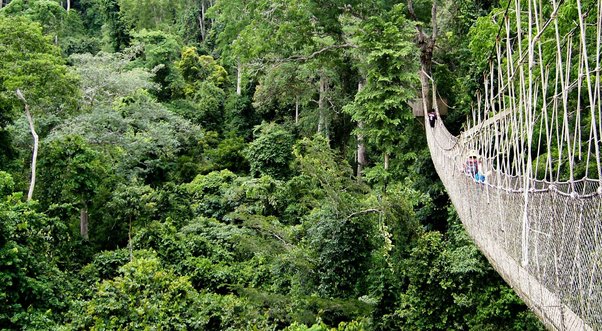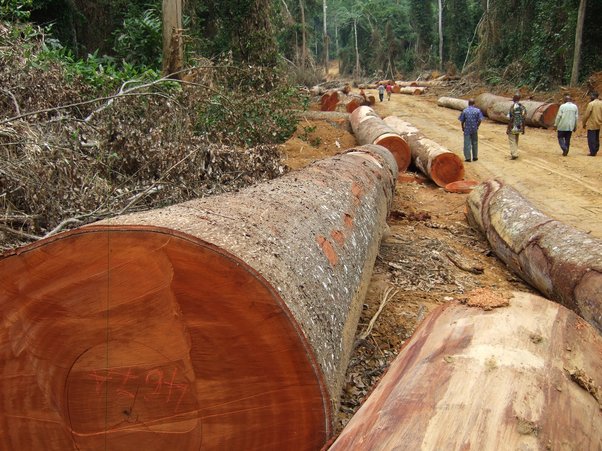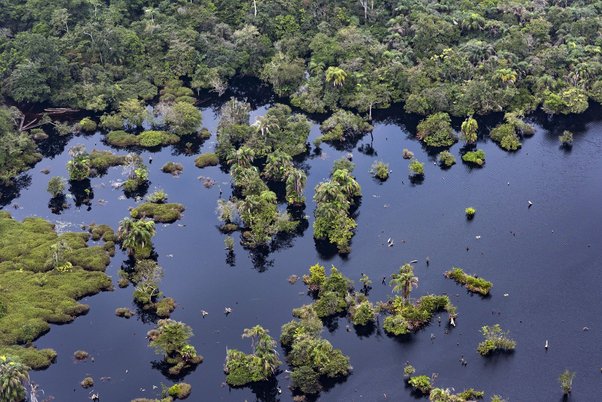Investigation reveals world’s largest tropical peatlands under threat from oil drilling by a company with close links to Republic of Congo’s ruling family
One of the world’s biggest carbon sinks is at risk from oil exploration, a new report by Global Witness reveals. Drilling in climate-critical peatland forests in the Republic of Congo could pave the way to the release of billions of tonnes of carbon. Potential financiers of the project also risk being exposed to corruption and could be left empty handed.
In August 2019, a company controlled by one of Africa’s richest men, Claude Wilfrid Etoka, announced the discovery of a reportedly vast oil reserve in Republic of Congo. It is located in a region where in 2014 scientists discovered the existence of the world’s largest tropical peatlands, storing an estimated 30 billion tonnes of carbon – equivalent to three years’ worth of global fossil fuel emissions.
In a report published today, What lies beneath, Global Witness reveals that – contrary to the Congolese government’s claims – this oil project poses a direct threat to these climate-critical peatlands. Its environmental impact study almost entirely predates the peatlands’ discovery and contains no analysis of the risk to peatlands from drilling.
The investigation – undertaken in collaboration with the European Investigative Collaboration (EIC) network of journalists – also found evidence that the private Congolese company that announced the oil strike, Petroleum Exploration and Production Africa (PEPA), is run by a nephew of President Sassou-Nguesso, presenting an apparent conflict of interest. There are close links between the President’s family and Etoka, who is the head of PEPA’s board and its major shareholder.
“The Ngoki project is characterised by corruption risks and the potential to inflict irreversible environmental harm,” said Colin Robertson of Global Witness. “Its links to Congo’s ruling clan and a seemingly reckless handling of environmental issues mean any investor would run significant risks by backing this project.”
Global Witness has seen evidence that the bank accounts of Etoka’s oil trading company, SARPD Oil, were closed by BNP Paribas because of his close links to the presidential family. The bank also appeared concerned by a lack of transparency as to how he acquired a highly lucrative relationship with the state oil company. SARPD Oil appears to have made a fortune acting as an intermediary between Société Nationale des Pétroles du Congo and international oil traders.
Etoka took control of the rights to drill in the as-yet untapped Ngoki oil field by manoeuvring out a rival. Acquiring 30% of the Ngoki oil project in 2013, he later diluted the majority shareholder’s stake down to less than 1% at a board meeting to which the project’s main shareholder claimed not to have been invited. Etoka told Global Witness that his takeover of the company was approved by Congo’s commercial court.
Even if Etoka’s dealings were squeaky clean, the Ngoki project is likely to prove a disappointment. Global Witness and EIC’s investigation learned that in 2015, Total and Shell both rejected offers to invest in the Ngoki oil project, after viewing a seismic survey. Other oil experts have cast doubt on the credibility of Etoka’s claimed oil discovery, suggesting the project’s potential returns may have been greatly overestimated.
“The Congo peatlands are the last place on Earth that extracting more fossil fuels should be considered. Oil majors, in particular Total and ENI, should publicly state that they will not invest in oil exploration anywhere in or around the Congo Basin peatlands. Banks should also refuse to finance any drilling there, and aid donors should insist no exploration occurs,” said Colin Robertson.
Read this page in


